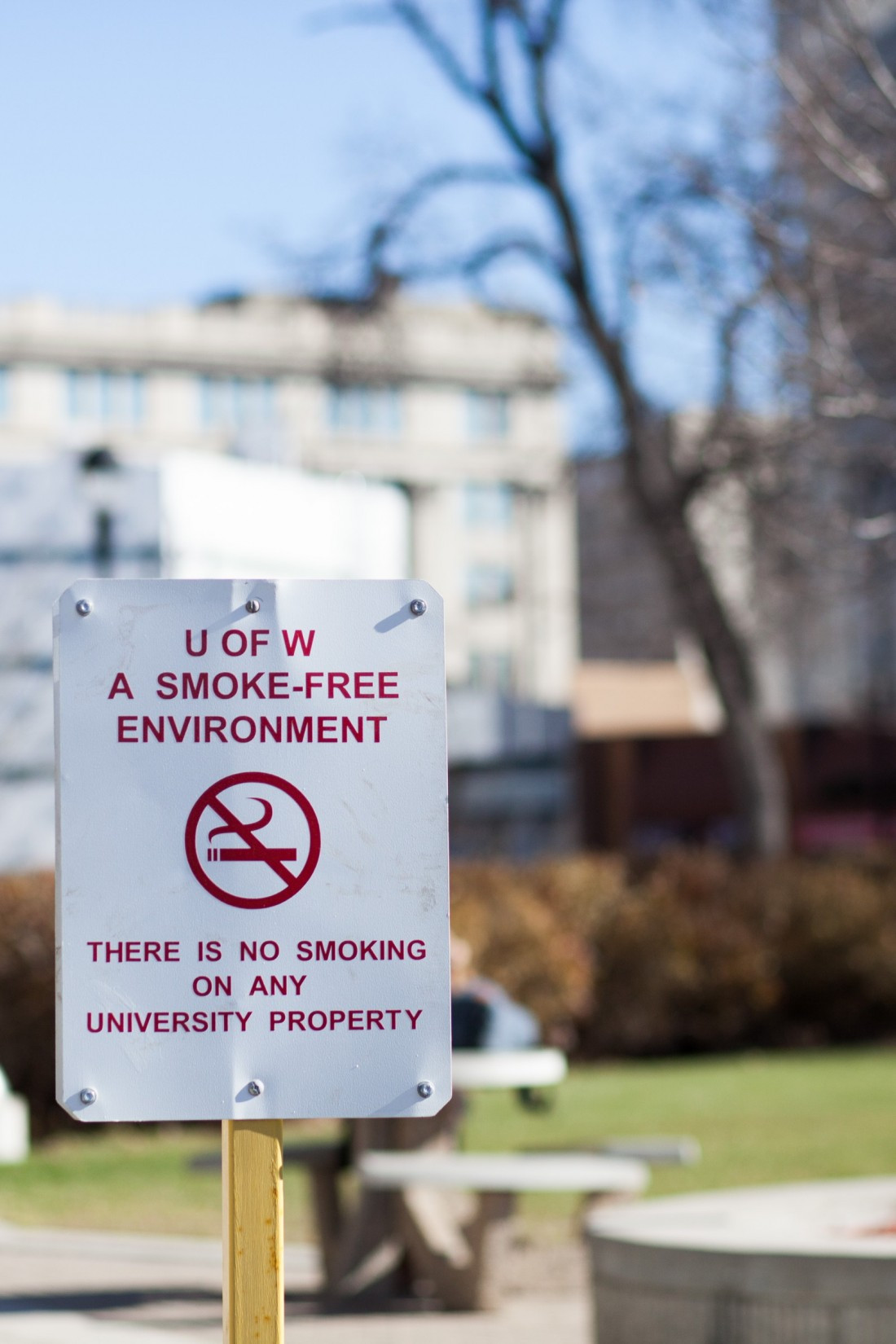NO SMOKE, EVEN WITHOUT FIRE
U of W revises its smoking policy to include e-cigarettes
The popularity of e-cigarettes and vaping has caused the University of Winnipeg (U of W) to revise its campus smoking policy.
In the new smoking policy – which has yet to be posted online, but has been in place since April – vaping is stated to be the use of an e-cigarette, which is defined as a cigarette-shaped device containing water, flavouring, propylene glycol and possibly nicotine. The liquid mixture is vaporized and inhaled, simulating the experience of smoking tobacco.
The U of W’s definition of “smoking” has been expanded to include the smoking of all tobacco products, vaping of e-cigarette products and any other products that may be smoked.
As a result of the revision, since April 1, 2015, vaping has been considered equivalent to smoking.
“Vaping is being treated the same as smoking,” Laurel Repski, the vice-president of human resources, audit and sustainability, says. “You can’t vape inside, you can vape in the area where people can smoke.”
There are no specially designated places for smoking inside the university, since the U of W is considered to be a smoke-free property. Students have the right to smoke in public places, but it should be at least 20 feet (roughly six metres) from the university’s doors.
The U of W looked to update its smoking policy after the issue was raised about vaping inside the university, which wasn’t against the rules at the time, but became a concern for fellow students’ health.
“If you look at Health Canada’s website for example, there still hasn’t been any conclusive fact-based evidence that would say that vaping isn’t potentially harmful,” Repski says.
“You don’t know potentially how that can impact people – people with asthma and allergies and other sensitivities like that. So we think that it’s important to make sure the whole concept of being a smoke-free campus is seen in all aspects.”
The new smoking policy was approved by the university’s workplace safety and health committee, which includes representatives from the University of Winnipeg Students’ Association, the University of Winnipeg Faculty Association, the Association of Employees Supporting Education Services, the International Union of Operating Engineers, management and other staff.
Apart from reviewing the issue of vaping, the new policy also touches on the use of medical marijuana.
“(The U of W) has a duty to accommodate many things, so if somebody has a genuine health condition that has been deemed to be treatable by medical marijuana they would be able to present evidence,” Repski says.
“So (the person would need) a doctor’s note indicating that this is being prescribed for them, how often they would have to undertake the medication and we would have to find space on campus to accommodate them.”
Since the smoking policy was revised quite recently, it is still not well-known and students who vape may not be aware of the rule changes.
According to Chris Minaker, a senior executive officer and advisor to the president at U of W, “the updated version (of the policy) is still to be posted to the website, but it will be posted very soon.”
Published in Volume 70, Number 8 of The Uniter (October 29, 2015)


